Submitted by WA Contents
Novartis Pavillon explores "the potential of organic photovoltaics" with zero-energy media façade
Switzerland Architecture News - Jul 05, 2023 - 14:56 3279 views
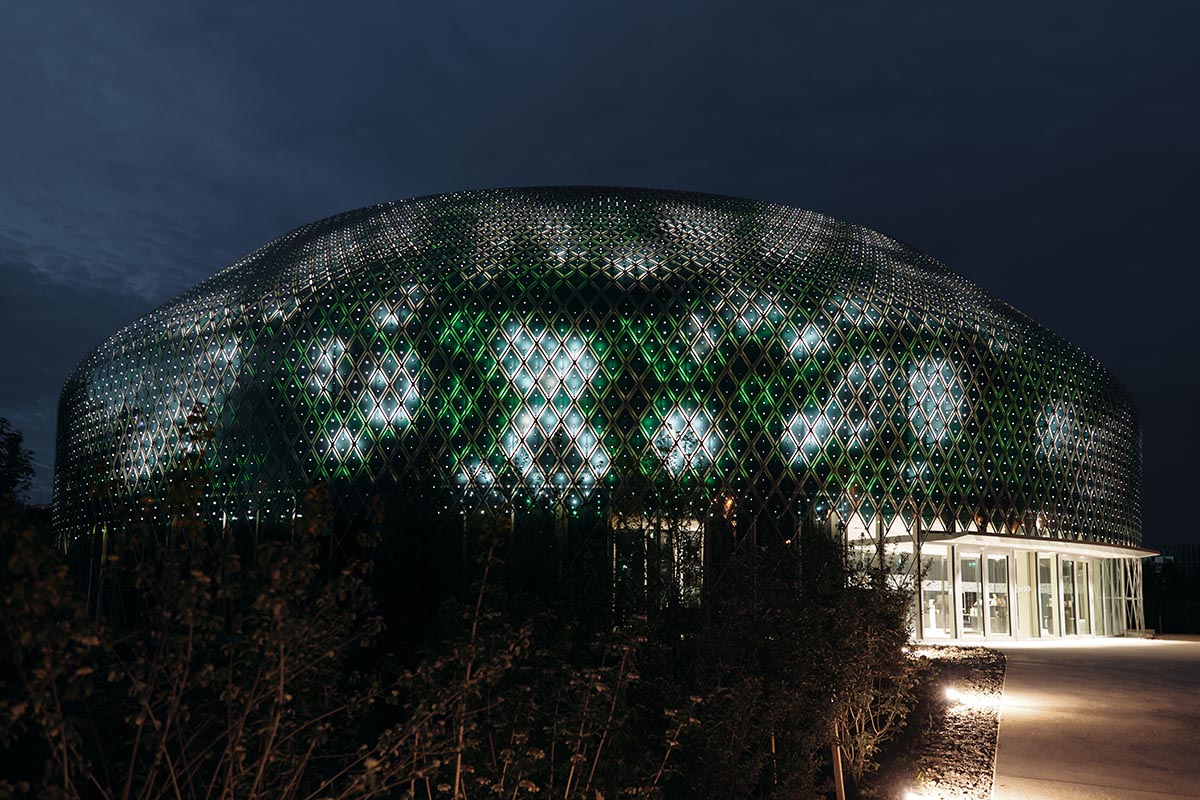
Basel-based architecture studio iart – studio for media architectures has designed the Novartis Pavillon featuring a zero-energy media façade, created in collaboration with Milan-based architecture practice AMDL CIRCLE and Michele De Lucchi in Basel, Switzerland.
The dome-shaped building is wrapped by a total of 10,000 diamond-shaped solar modules combining organic photovoltaics and LEDs, giving a shimmering effect for its skin.
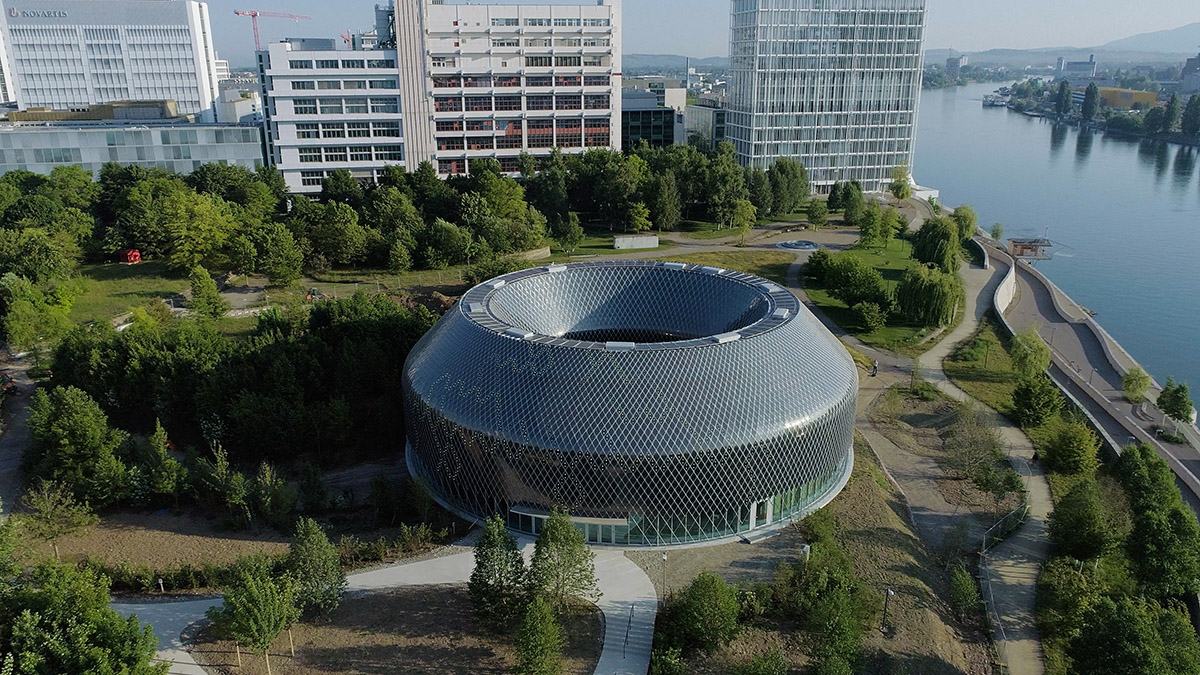
Image © iart – studio for media architectures
According to the design team, the building "consumes only as much electrical energy as it is capable of producing", that's why the team describe that "membrane becomes a zero-energy media façade."
The structure spans the recently opened Novartis Pavillon on the Novartis Campus in Basel, Switzerland, illustrating the potential of organic photovoltaics in architecture.
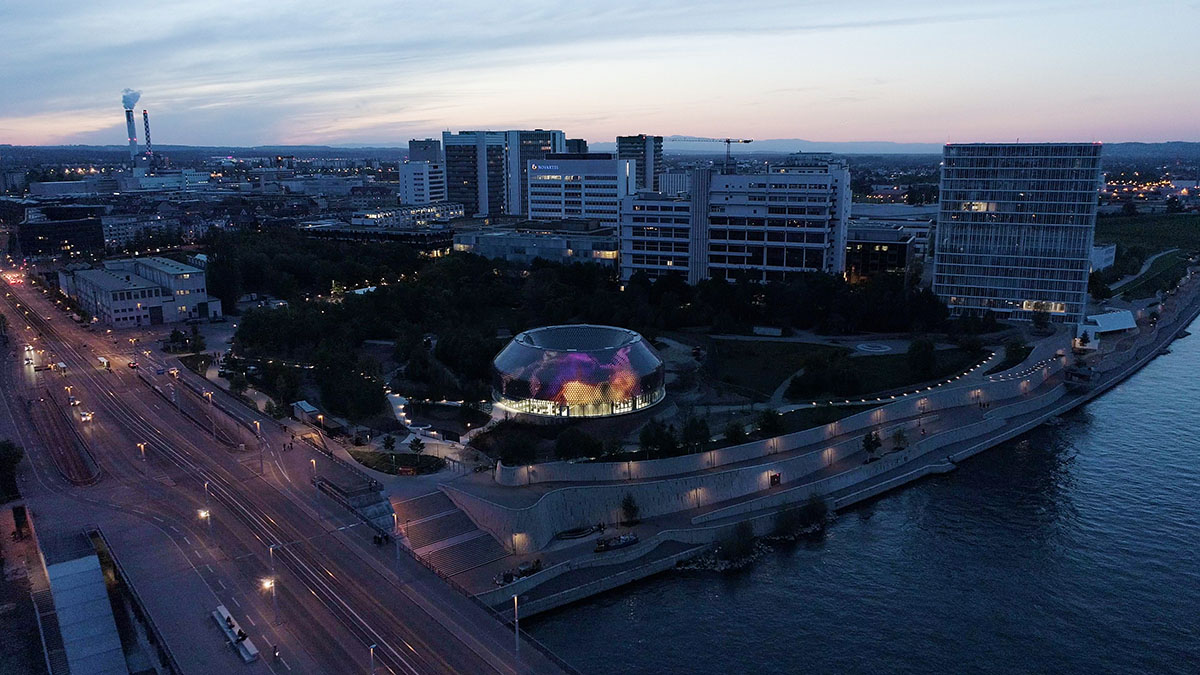
Image © iart – studio for media architectures
The team created this façade from carbon-based organic solar modules that were custom-made for the Novartis Pavillon.
"Their design and physical properties make these organic solar modules ideal for use on the dome-shaped Novartis Pavillon," said iart – studio for media architectures.
"They can be produced in various shapes and are bendable, translucent, and extremely light-sensitive, enabling them to be installed in spots not ideally oriented towards the sun."
"They also contain less grey energy than silicon solar modules, making them interesting from a sustainability perspective," added the office.

Image © iart – studio for media architectures
The arrangement of the solar modules on the dome-shaped Novartis Pavillon enables measurement of the electricity produced in all directions.
Data collected during the first few months of operation shows that the façade produces enough power to display text in the daytime - when the exhibition is open - and digital art animations for up to two hours after sunset.
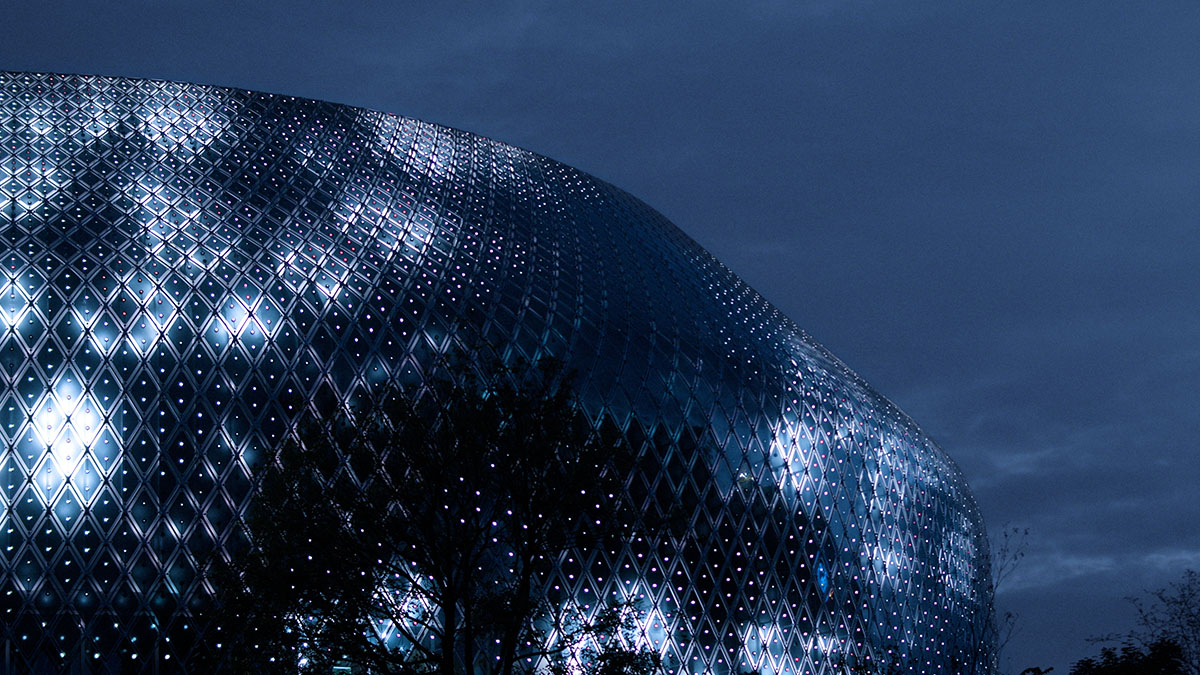
Image © iart – studio for media architectures
The studio explained that "an extensive analysis will be possible in a few months, once sufficient data is available."
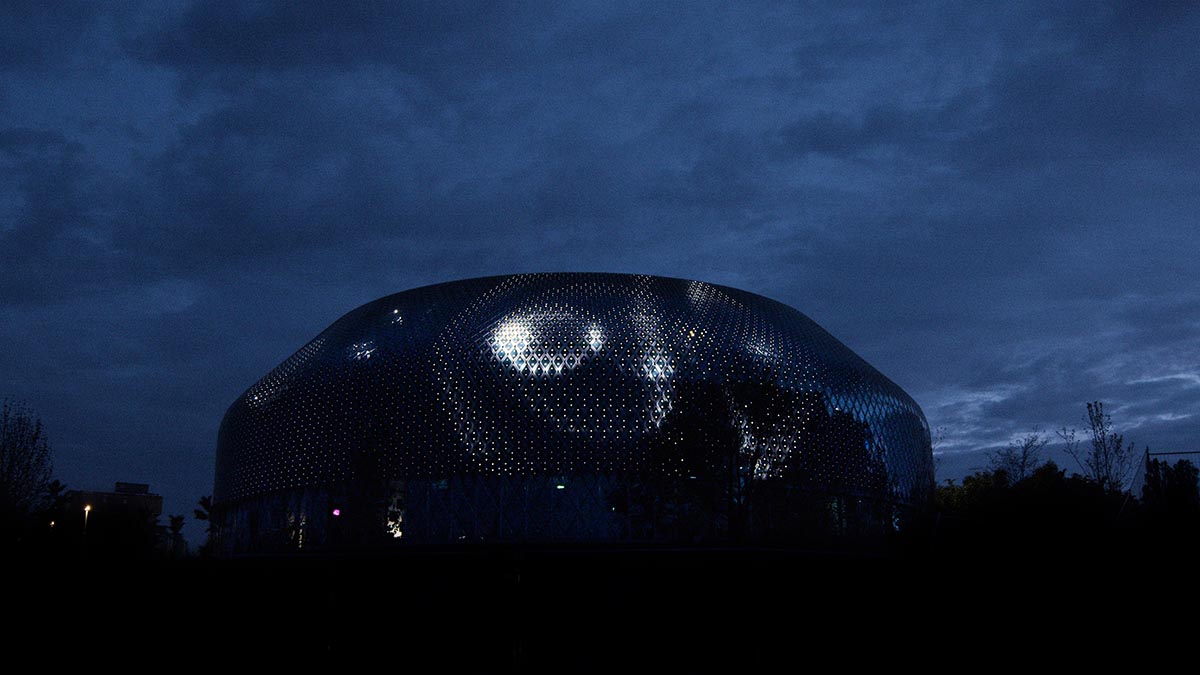
Image © iart – studio for media architectures
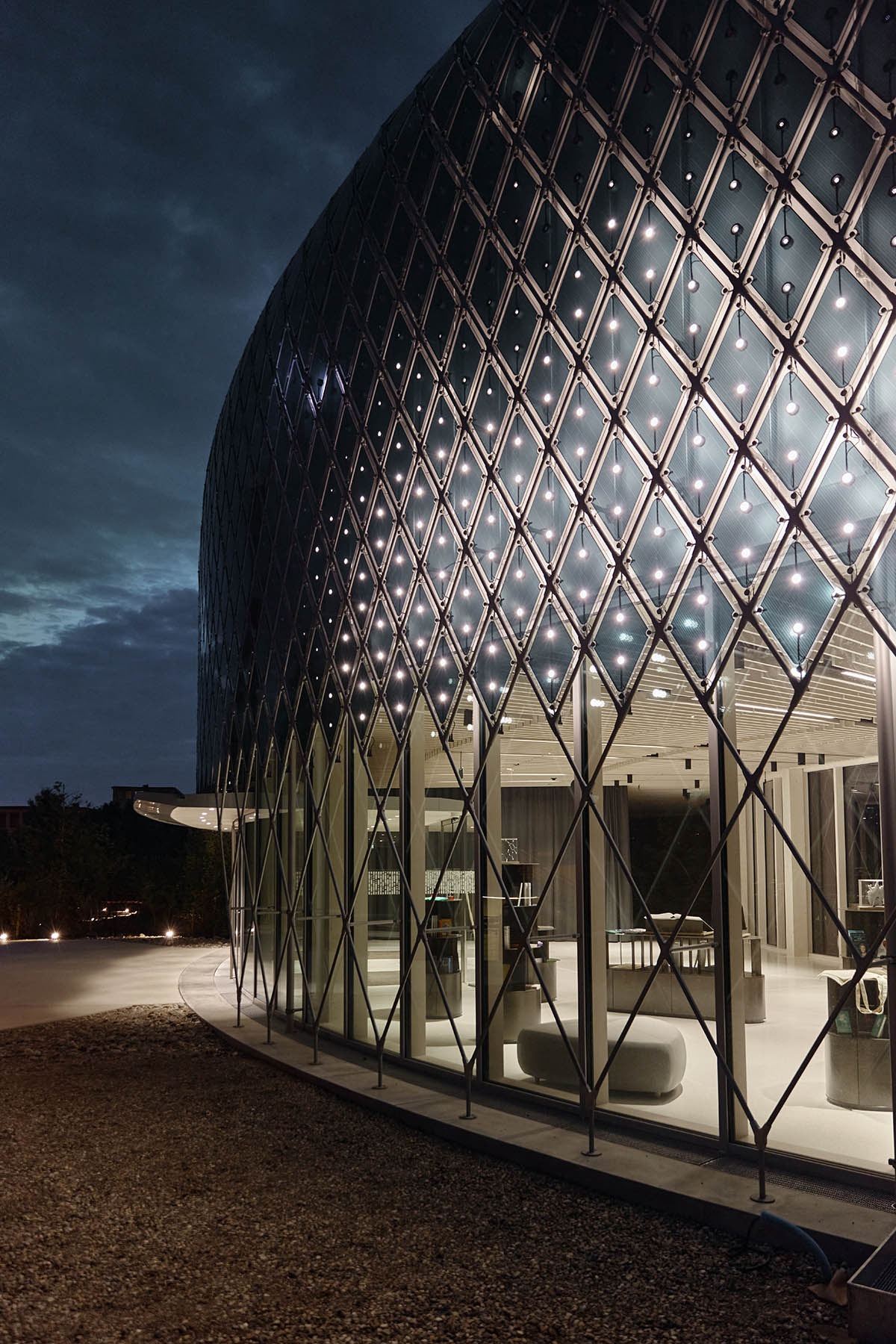
Image © Laurids Jensen
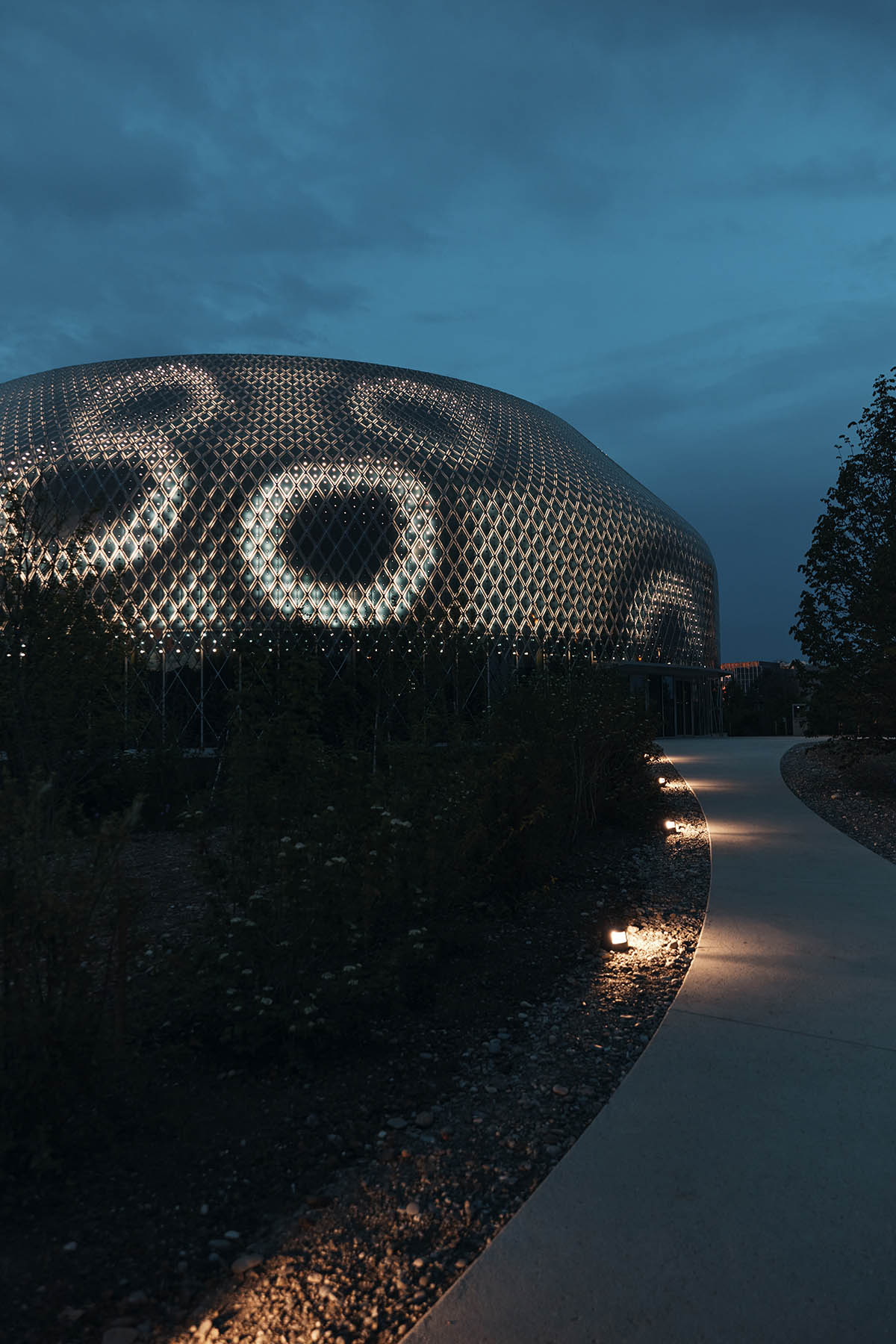
Image © Laurids Jensen
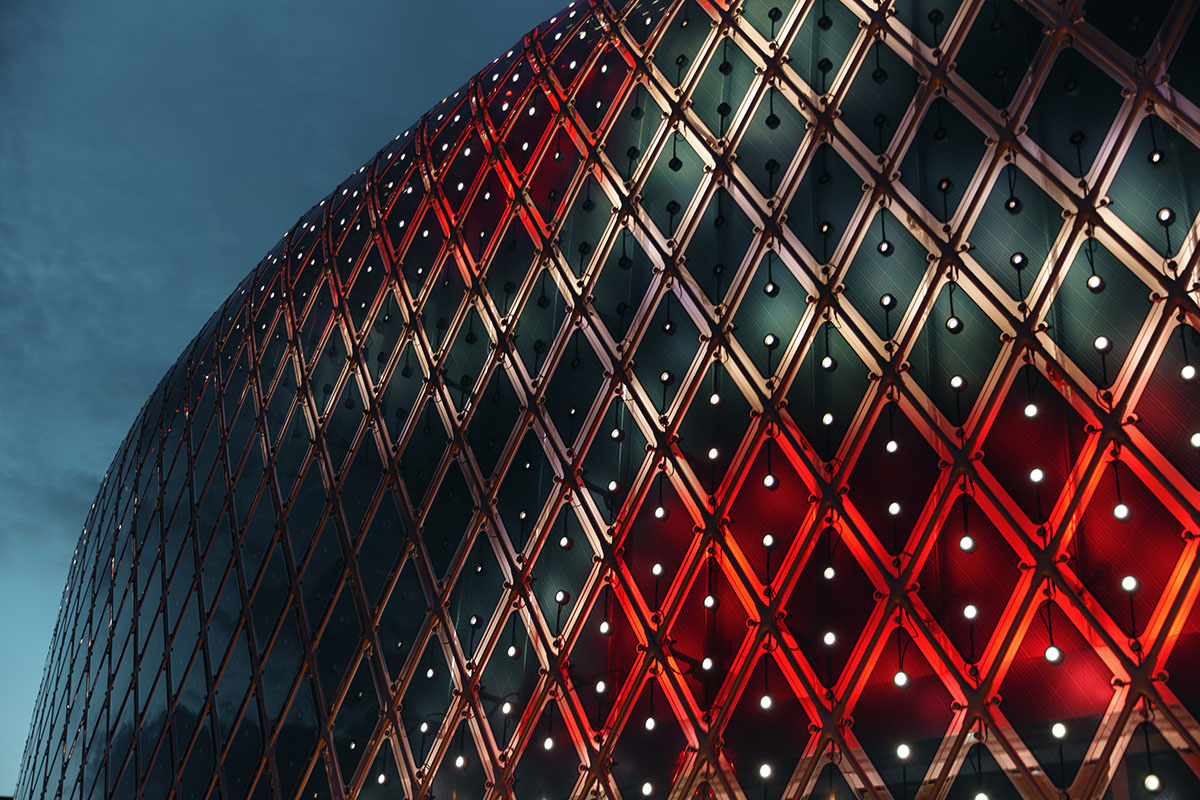
Image © Laurids Jensen
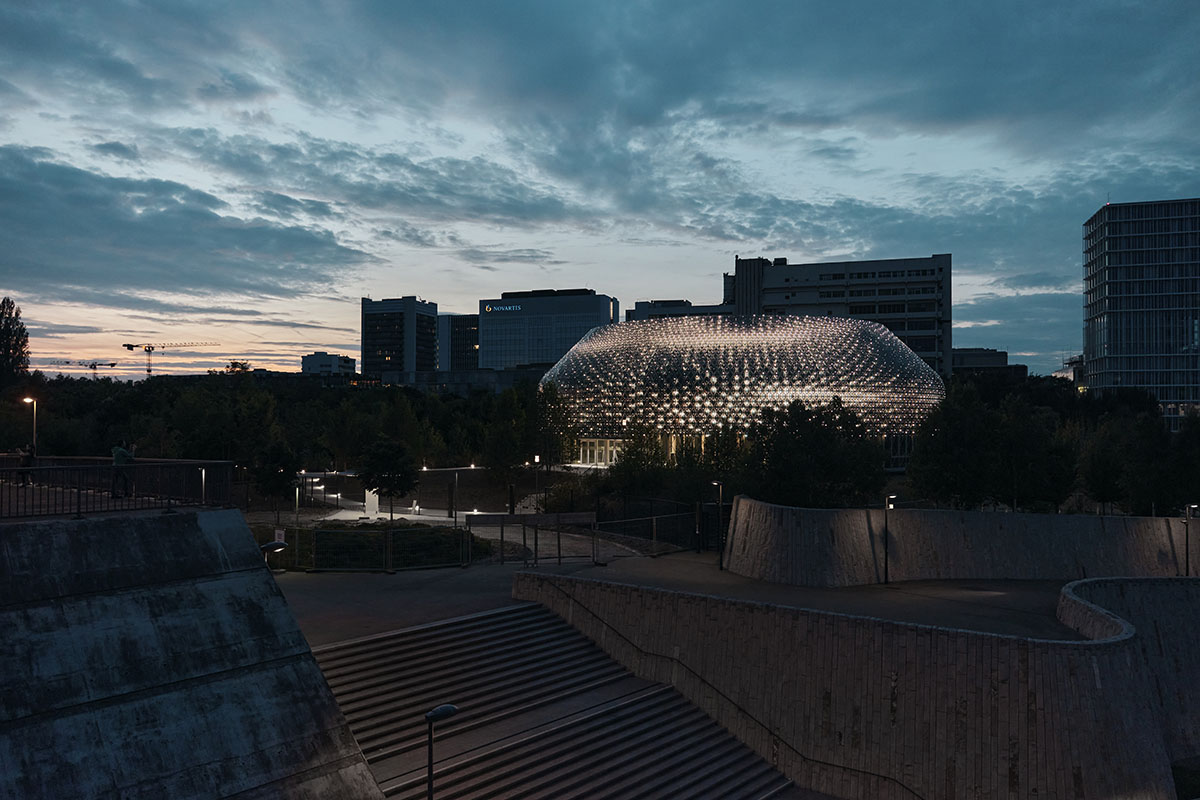
Image © Laurids Jensen
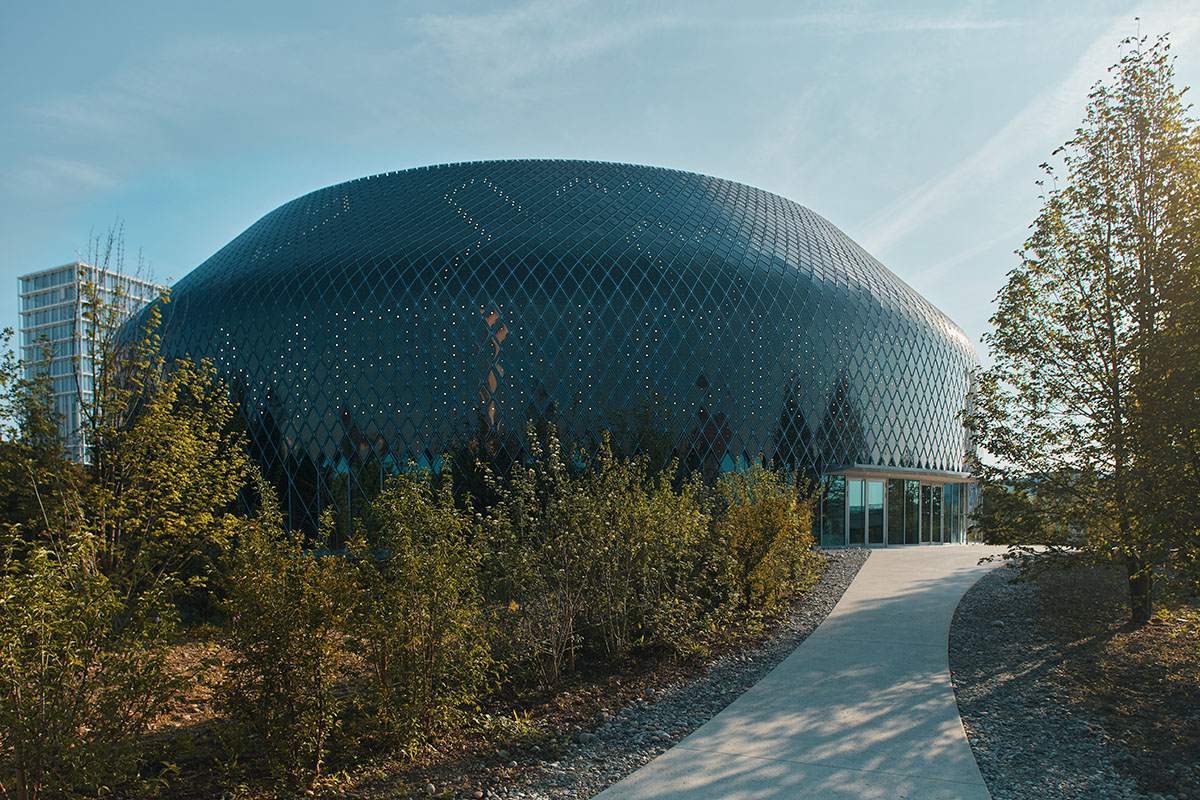
Image © Laurids Jensen

Image © Laurids Jensen

Image © Laurids Jensen

Image © Laurids Jensen
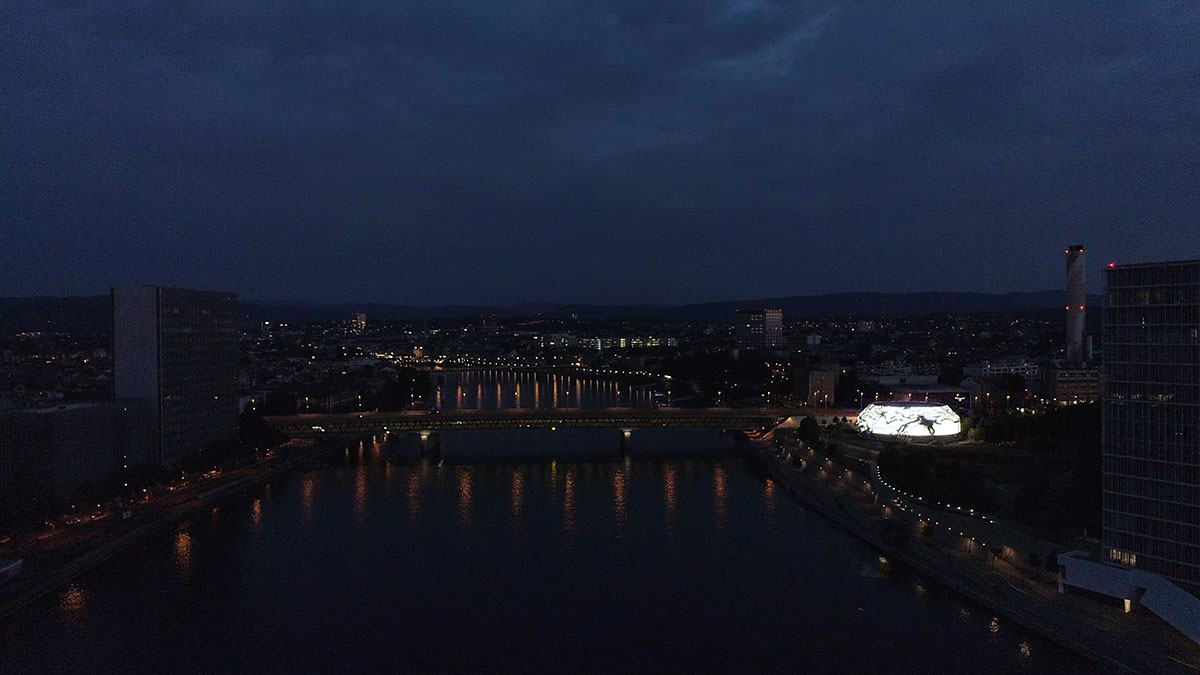
Image © iart – studio for media architectures

Image © iart – studio for media architectures
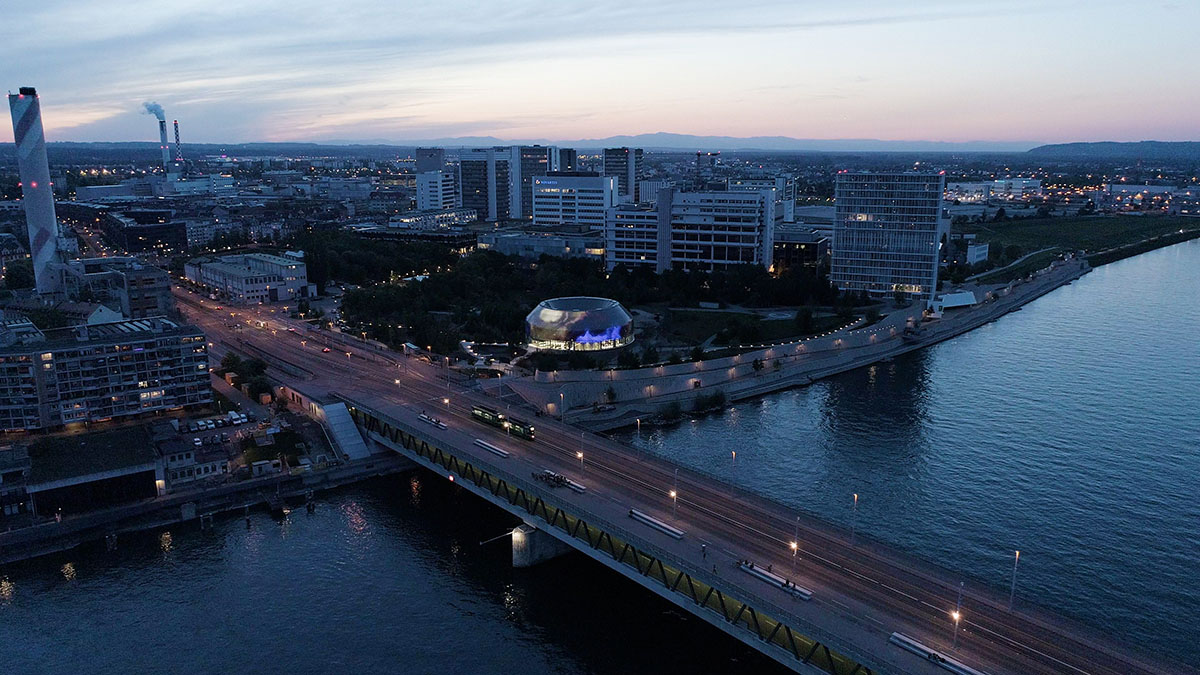
Image © iart – studio for media architectures
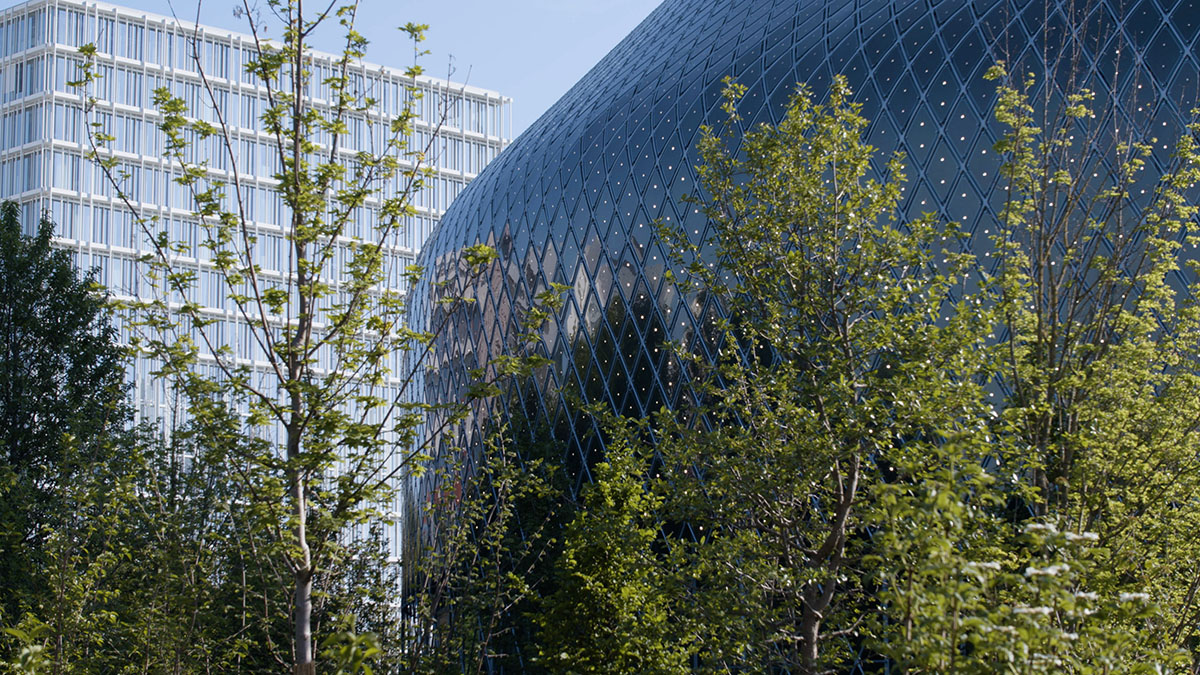
Image © iart – studio for media architectures
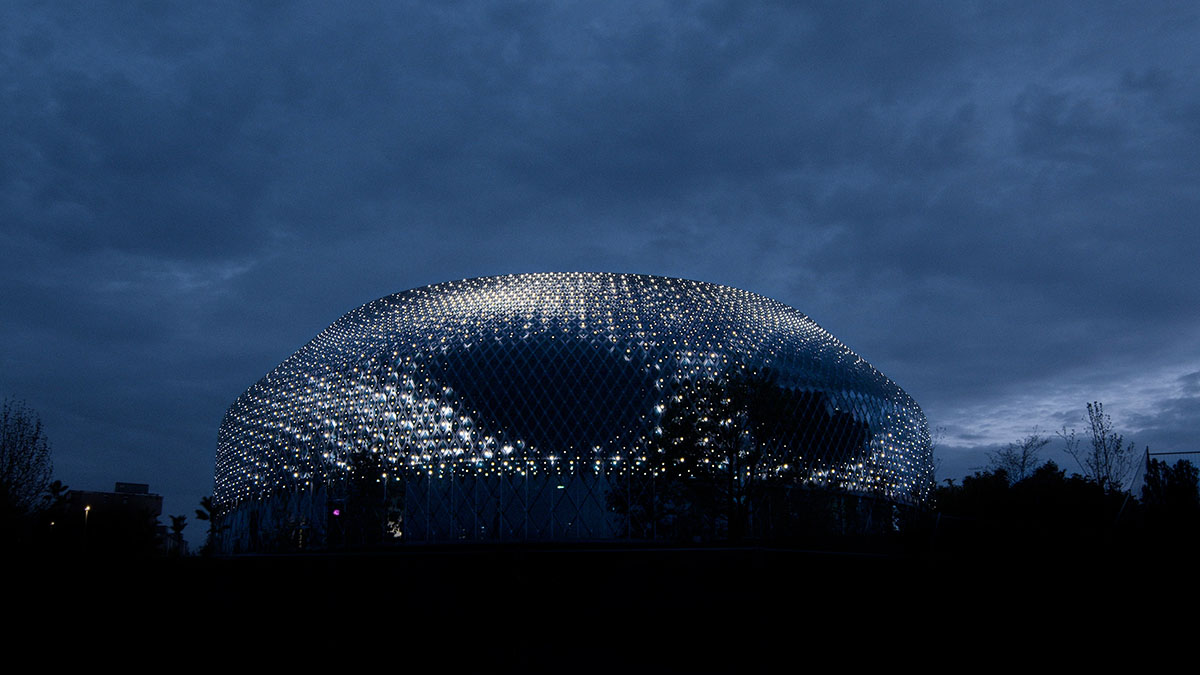
Image © iart – studio for media architectures
iart is a studio for media architectures based in Basel, Switzerland. Founded in 2001 by Valentin Spiess, iart enhances physical spaces with digital technology, thus enabling novel experiences.
Project facts
Solar modules produced: by ASCA
Organic solar modules: 10’680
LED units 15’120: (bi-directional, 30’240 LEDs in total)
Tubes in subconstruction: 22’536
Nodes in subconstruction: 11’608
Facade surface area: 2’471 m2
Photovoltaic surface area: 1’333 m2
Maximum capacity: 36 kWp
Power production per year (estimate): 20 MWh
Top image © Laurids Jensen.
All images © Laurids Jensen unless otherwise stated.
> via iart – studio for media architectures
iart – studio for media architectures media façade photovoltaics
